Programme
All times listed are in Malaysia time (GMT+8)
The following sessions are open to the public. Registration is essential. To register, please follow the links below.
Welcome | Varieties of Decolonizing Discourses: Malaysia’s Contribution
Tuesday, 9 August,
10:00AM – 11:30AM
Authoritarianisms, Past and Present
Wednesday, 10 August,
10:00AM – 12:00PM
Caring for the Orang Utan: Beyond a Species to Protect
Friday, 12 August,
2:00PM – 4:00PM
Translation in Asia: Voyage, Infrastructures, and Dissemination of Thoughts
Monday, 15 August,
10:00AM – 12:00PM
Movement: In, Between, and Beyond Myanmar and Malaysia
Wednesday, 17 August,
12:30PM – 2:00PM

Tuesday, 9 August,
10:00am – 11:30am MYT (GMT+8)
Register: https://forms.gle/LNfVbAKy9kZczwFy9
Welcome
The 2022 Inter-Asia Cultural Studies (IACS) Summer School will officially open with brief welcome speeches by Universiti Malaya Faculty of Arts and Social Sciences Dean, Danny Wong Tze Ken; the IACS Society Chair, Audrey Yue; and Vice-Chair, Andy Wang.
“Varieties of Decolonizing Discourses: Malaysia’s Contribution”
A Lecture by Syed Farid Alatas
Chair: Sharmani Patricia Gabriel
It is often forgotten or not realised that anti-colonial discourses, and the concomitant attempt to decolonise knowledge through critique and the actual production of new ideas in theory and methodology, had begun about one hundred and fifty years ago. It is often assumed that such discourses began as late as the 1950s. Furthermore, in the Malay World, we tend to think that such discourses have an external provenance and associate them with colonial critics such as Frantz Fanon and Aimé Césaire or critics of Orientalism such as Edward Said. What is seldom discussed is the fact that Malaysia has produced its own tradition of anti-colonial discourse, the genealogy of which can be traced in time to the nineteenth century and in space to both our region itself as well as the Netherlands. This presentation provides an introduction to this tradition and makes comparisons with later trends such as that associated with the Asia as Method approach.

Syed Farid Alatas is Professor of Sociology & Anthropology at the National University of Singapore, and Visiting Professor at the Department of Anthropology & Sociology, Universiti Malaya. He also headed the Department of Malay Studies at NUS from 2007 to 2013. Farid has authored numerous books and articles, including Ibn Khaldun (Oxford University Press, 2013); Applying Ibn Khaldun: The Recovery of a Lost Tradition in Sociology (Routledge, 2014); (with Vineeta Sinha) Sociological Theory Beyond the Canon (Palgrave, 2017) and “Political Economies of Knowledge Production: On and Around Academic Dependency” (Journal of Historical Sociology, 35.1, 2022: 14-23). His areas of interest are the sociology of Islam, social theory, religion and reform, intra- and inter-religious dialogue, and the study of the problems of colonial and Eurocentric knowledge.

Sharmani Patricia Gabriel is Honorary Professor of English at Universiti Malaya, Kuala Lumpur. Her areas of research interest include diaspora literatures, critical theory, and postcolonial studies, with a focus on cultural identity formation and issues of representation and power. A recent journal publication is “Racialisation in Malaysia: Multiracialism, Multiculturalism, and the Cultural Politics of the Possible” (Journal of Southeast Asian Studies, 2021). Her other work has appeared in Ethnic and Racial Studies, Postcolonial Studies, Inter-Asia Cultural Studies, Ethnicities, Mosaic, and Critical Asian Studies. Her latest book publication is the co-edited volume, Orientalism and Reverse Orientalism in Literature and Film: Beyond East and West (Routledge, 2021). Sharmani is Editor-in-Chief of SARE: Southeast Asian Review of English (https://sare.um.edu.my/) and also serves on the advisory and editorial boards of several other journals and book series.

Authoritarianism
Wednesday, 10 August,
10:00AM – 12:00PM MYT (GMT+8)
“Authoritarianisms, Past and Present”
In this roundtable discussion, four interdisciplinary scholars of modern Asia will discuss authoritarianism in the region, paying particular attention to questions of colonial and postcolonial histories, the Cold War, authoritarian imaginaries, state violence, populism, and the role of culture and aesthetics in the production of, and resistance to, authoritarian regimes.
Speakers
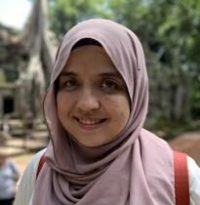
Nur Dayana Mohamed Ariffin is a historian of colonial and Southeast Asian studies at Universiti Malaya, Kuala Lumpur. She received her bachelor’s and master’s degrees from the International Islamic University Malaysia, and her Ph.D from the University of Edinburgh, UK. Her doctoral research focuses on the formation of racial classification in the Philippines through science and the politicisation of science. She has published articles on the history of Malaysia and the Philippines, and her first book, Race Manifest (University of Malaya Press), will be out in 2022. Outside of academia, Dayana occasionally writes on education, children’s rights, and unconventional ideas about history.

Fiona Lee Hsiao Yen is Senior Lecturer at the Department of English, Universiti Malaya. Her research explores histories of 20th-century decolonization and the global cold war through the study of literature and the arts, with a focus on Malaysia and the Asia Pacific. Her essays on Malaysian literature, cinema, art, and culture have been published in the Journal of Postcolonial Writing, Verge: Studies in Global Asias, Inter-Asia Cultural Studies, Postcolonial Text, and Concentric: Literary and Cultural Studies. She has also held academic appointments at the National University of Singapore, Asia Research Institute (2014–2016) and the University of Sydney, Australia (2016–2021).
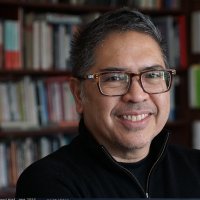
Vicente L. Rafael is Professor of History and Southeast Asian Studies at University of Washington, Seattle. Trained in Southeast Asian history, European intellectual history and anthropology, Vincent’s research interests include language and power, the politics of translation and literature, comparative colonialisms and nationalism, the social history of media and mediation, critical theory and anthropology, empire, race and gender. He is the author of innumerable monographs, collected volumes, and articles. His books include White Love and Other Events in Filipino History (2000); The Promise of the Foreign: Nationalism and the Technics of Translation in the Spanish Philippines (2005); Discrepant Histories: Translocal Histories on Filipino Cultures (Ed); Motherless Tongues: The Insurgency of Language amid Wars of Translation (2016); and The Sovereign Trickster (2022).

Jini Kim Watson is Associate Professor of English and Comparative Literature at New York University. Her teaching and research lie at the intersection of postcolonial literary studies, the urban humanities, and studies of cultural and political modernity during the global cold war. She is the author of Cold War Reckonings: Authoritarianism and the Genres of Decolonization (Fordham UP, 2021, honourable mention for the 2022 René Wellek Prize), and The New Asian City: Three-dimensional Fictions of Space and Urban Form (Minnesota UP, 2011). Jini has also co-edited, with Gary Wilder, the collected volume, The Postcolonial Contemporary: Political Imaginaries for the Global Present (Fordham UP, 2018).
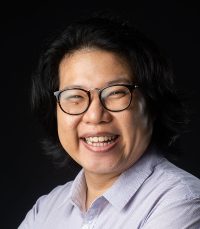
Benjamin Yew Hoong Loh is a senior lecturer at the School of Media and Communication, Taylor’s University. He is a media scholar who employs digital ethnography in studying emergent cultures and the digital public sphere. He received his PhD in communications and new media from the National University of Singapore, and works on the confluence between technology and society, with a particular focus on minority and marginalised communities. His works include co-edited books “Sabah from the Ground: The 2020 Elections and the Politics of Survival” (ISEAS/SIRD 2021) with Bridget Welsh and Vilashini Somiah, and “New Media in the Margins: Lived Realities and Experiences from the Malaysian Peripheries” (Palgrave 2023) with James Chin. He has also recently published a research article about pro-Russia narratives in the Ukraine War on Malaysian social media with ISEAS Perspectives (2022).

Friday, 12 August,
2:00PM – 4:00PM MYT (GMT+8)
Register: https://forms.gle/HbC75TWKACyyrAWbA
“Caring for the Orang Utan: Beyond a Species to Protect”
In her talk, June Rubis will explain how we need to decolonize ways of knowing so as to support existing Indigenous governance in conservation. Drawing on a kin study of maias conservation in Sarawak, Malaysian Borneo, she will explore the power dynamics and tensions emerging within practices and discourses of conservation. In particular, she will focus on the struggles and negotiations through which conservation actors understand the orang utan, as they are commonly known in an international space that overshadows Iban ways of naming and knowing the orang utan as maias. June will also discuss Iban classifications/names and relations with nature, and how these affect different understandings of conservation. Shaq Koyok and Rusaslina Idrus will serve as respondents.
Speakers

Rusaslina Idrus is Senior Lecturer at the Gender Studies Programme, Faculty of Arts and Social Sciences and an Associate Member of the Centre for Malaysian Indigenous Studies, Universiti Malaya. She received her PhD training in Social Anthropology and has a master’s degree in Environmental Science. Rusaslina has been conducting research and working with the Indigenous communities in Malaysia for many years with a particular focus on the Orang Asli of Peninsular Malaysia. Her most recent research articles include “Competing for the Indigenous Slot”, “Unpacking Indigeneity in Southeast Asia” (with Liana Chua), and “Indigenous resilience and the COVID-19 response”.
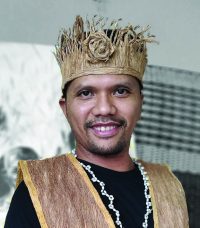
Shaq Koyok is a contemporary artist and activist of the Indigenous Temuan tribe of Selangor. During his childhood, land developers had encroached the jungle around his village and this experience of trauma is reflected in his many works and has also fuelled his passion to fight for his people’s land rights. He loves to explore many mediums of art, from contemporary painting to installation art.
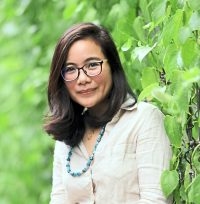
June Rubis is an environmental geographer working on environmental governance, geographies of conservation, and Indigenous studies with a regional focus on Borneo and, more recently, Australia. She has 12 years of practical conservation field experience in Borneo, which informs her current work. Partnerships with Indigenous communities are central to her work, and she is currently the Co-Chair of Documenting Territories of Life with the international consortium of Indigenous and Communities Conserved Areas (ICCA). Her passion for environmental issues began when she witnessed land degradation in Sarawak, Malaysian Borneo, in her family’s native territories and elsewhere in Borneo, where she experienced the issues first-hand as a Bidayuh Bornean woman. June is currently a Postdoctoral Fellow in Indigenous Environmental Studies at the University of Sydney’s Environment Institute and Department of Geosciences, and a member of the Institute for Freshwater Fish Futures (IFFF) and several academic collectives seeking to reimagine new futures in academia and beyond.
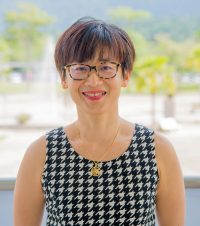
Moderator
Gaik Cheng Khoo is Associate Professor of Film and Television Studies at the School of Media, Languages and Cultures, University of Nottingham Malaysia where she teaches Southeast Asian cinema, postcolonial theory, and posthumanism. She spent a decade researching independent filmmaking in Malaysia but her interest and research also includes food studies, Korean migrants in Malaysia, and developing a sustainable and ecological model for the Malaysian durian. Recent publications include the co-edited volume Southeast Asia on Screen: From Independence to Financial Crisis (1945-1998) (Eds. G.C. Khoo, Thomas Barker and Mary J. Ainslie, Amsterdam University Press, 2020). Forthcoming publications include “A Whiff of Southeast Asia: Tasting Durian and Kopi” with Jean Duruz, in Olfactory Cultures of Asia (Eds. Hannah Gould and Gwyn McClelland, Penn State University Press), and “Adjusting to Slow Times and Happiness: South Koreans in Malaysia,” in Korea Journal.

Monday, 15 August,
10:00AM – 12:00PM MYT (GMT+8)
Register:
https://forms.gle/5S6xjWvSAe8m2sw87
“Translation in Asia: Voyage, Infrastructures, and Dissemination of Thoughts”
Translation involves a journey from one space to another. How did language, culture, and thoughts travel in Asia and globally in the 20th and 21st century, and what kinds of mechanisms and infrastructures existed to make translation (im)possible? This session offers two mini-lectures by Ruth Barraclough and Ramon Guillermo, with responses by Show Ying Xin and Thiti Jamkajornkeiat.
Cold War Culture and the Voyage of Translation
Ruth Barraclough
This talk is about a classic factory girl novel, The Human Predicament (1934), written in Manchuria by the Korean writer Kang Kyŏng-ae, and its remarkable voyage of translation. The novel made its author famous in colonial Korea in the mid-1930s. In the late 1940s it was republished in Pyongyang as part of North Korea’s attempt to create a national communist culture. During the Cold War it was translated and published in the Soviet Union, East Germany, and China, with different titles and explanatory notes for each national and temporal context. In the 2000s it was published in English, and most recently in Arabic, while in South Korea it has become a modern classic. This talk is about a Cold War journey of canonisation, systems of translation, and one book’s capacity to find a century of readers.
Tracing Textual Mobilities: Sketching the Outlines of Global Translational Infrastructures in Southeast Asia from the End of the Cold War to the First Decades of Globalization
Ramon Guillermo
Translation makes possible the flow of texts between different nations and language communities. However, what is usually neglected is the fact that all translational practices are historically embedded in what might be called more or less elaborate translational infrastructures. Translational infrastructures are the social and cultural institutions which may function to facilitate and accelerate translational processes in a particular nation or community. Using data from UNESCO’s Index Translationum, this paper will attempt to trace the outlines of the most significant international translational infrastructures from the final decade of the Cold War to the decades of globalization which immediately succeeded it. Special emphasis will be given to East and Southeast Asia. The Index Translationum is an online database containing bibliographical information on translated and published books between 1979 and 2009 with more than 2 million entries in all disciplines. It is by no means complete or accurate in all respects, especially on Southeast Asia, but it serves as the closest approximation yet to the world’s most comprehensive database of translations.
Speakers

Ruth Barraclough teaches at the College of Asia and the Pacific at the Australian National University. She researches contemporary Korean history, gender studies and literature, and is a translator of Korean literary fiction. Ruth’s second book Factory Girl Literature was translated into Korean in 2017 and spent 20 weeks on the history bestseller list. The book is about the working-class women and girls who generated Korea’s industrial revolution while at the same time cherishing ambitions to be writers, novelists, and poets. Her new project is a book, co-authored with Jiseung Roh, on Korea’s glamorous early communist women.

Ramon Guillermo is the director of the Center for International Studies (CIS) at the University of the Philippines Diliman. His current research projects are on the transmission, dissemination, reception, and translation of radical texts and ideas in Southeast Asia using techniques and approaches from translation studies and the digital humanities. He is the author of several books, including Translation and Revolution: A Study of Jose Rizal’s Guillermo Tell (Ateneo de Manila University Press, 2009), Pook at Paninindigan: Kritika ng Pantayong Pananaw (Site and Standpoint: A Critique of Pantayong Pananaw) (UP Press, 2009), and the novel Ang Makina ni Mang Turing (Mister Turing’s Machine) (UP Press, 2013). He was Faculty Regent of the University of the Philippines from 2019 to 2020.

Thiti Jamkajornkeiat is Assistant Professor of Southeast Asian Studies at the University of Victoria, Canada. He received his Ph.D in South and Southeast Asian Studies with a Designated Emphasis in Critical Theory from the University of California, Berkeley. He works at the intersections of Marxism, post-, anti-, and decolonial theories, and modern Southeast Asia, specifically Indonesia and Thailand. His essays and interviews have appeared in Kyoto Review of Southeast Asia, Spectre, Haymarket Books, and Asia Art Tours. His first book project is on a global intellectual history of left internationalism in Indonesia during its postcolonial transition.
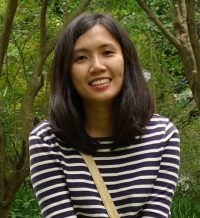
Show Ying Xin is Lecturer at the School of Culture, History and Language, and Deputy Director of the Malaysia Institute at the College of Asia and the Pacific, the Australian National University. Her work explores the history and culture of migration, decolonisation, and the impact of the Cold War on Asian societies through the prism of literature and the arts. Her current project examines the cultural history of Chinese literature in Malaya from 1945 to 1969. She co-edited (with Ngoi Guat Peng) Revisiting Malaya: Uncovering Historical and Political Thoughts in Nusantara (2020) and authored the Chinese translation of Alfian Sa’at’s flash fiction Malay Sketches (Traditional 2020; Simplified 2022).

Wednesday, 17 August,
12:30pm – 2:00pm MYT (GMT+8)
Register:
https://forms.gle/pmbece5B7inFhude6
“Movement: In, Between, and Beyond Myanmar and Malaysia”
Movement—of bodies, of ideas, and of things —shapes space, society and political possibility in Southeast Asia. This roundtable brings together scholars working in Myanmar and Malaysia to think about the theme of movement in, across, and beyond these contexts. In short presentations and subsequent discussions, we ask our speakers to reflect on several key questions:
- What does ‘movement’ look like in the contexts in which you work? How do you locate yourself in this work?
- How do you see movements connecting Myanmar and Malaysia or resonating across these contexts?
- How do these analyses help us to move beyond traditional boundaries of thinking and working in Southeast Asian Studies?
Speakers

Shae Frydenlund is a human geographer concerned with the political economy of forced displacement. Funded by the National Science Foundation and the SSRC, her research shows how Burmese refugee labour contributes to development in global North cities. This year she is Postdoctoral Fellow and Assistant Director of the Center for Refugee Studies at Indiana University Bloomington, USA. Her current project examines the paradox of “essential” refugee labour in the United States’ meatpacking industry. Shae is the author of articles published in Political Geography, Cultural Geography, Geoforum, and Journal of the Association of Nepal and Himalayan Studies. She earned her Ph.D. and M.A. in Geography from the University of Colorado Boulder, and a B.A. from Colgate University.

Aslam Abd Jalil is a Ph.D candidate at The University of Queensland and a Fellow of the International Institute of Public Policy and Management (INPUMA), Universiti Malaya. He has a background in anthropology, public policy and business studies and is currently researching the right to work for refugees in Malaysia.

Vilashini Somiah is an anthropologist and Senior Lecturer at the Gender Studies Programme at Universiti Malaya. She received her Ph.D from the National University of Singapore, her MA from Ohio University, and her MRes and BA from Universiti Malaya. She maintains a keen interest in underrepresented narratives of women, migrants, and Borneans living in the interiors. She is the co-editor of Sabah From the Ground: The 2020 Elections and the Politics of Survival (SIRD/ISEAS, 2021), and is the author of Irregular Migrants and the Sea at the Borders of Sabah, Malaysia: Pelagic Alliance‘ (Palgrave Macmillan, 2022). Outside of academia, she writes ethnographic articles on the local socio-political landscape.
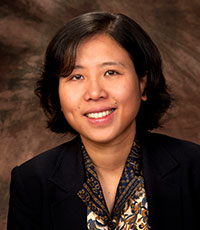
Tharaphi Than is an Associate Professor in the Department of World Languages and Cultures at Northern Illinois University, USA. Her research focuses on women, print media, dissent, and decolonization.

Moderator
Hilary Faxon is a Ciriacy-Wantrup Postdoctoral Fellow in the Department of Environmental Science, Policy and Management at the University of California, Berkeley. She conducts participatory research to advance environmental justice in Myanmar and Southeast Asia.

